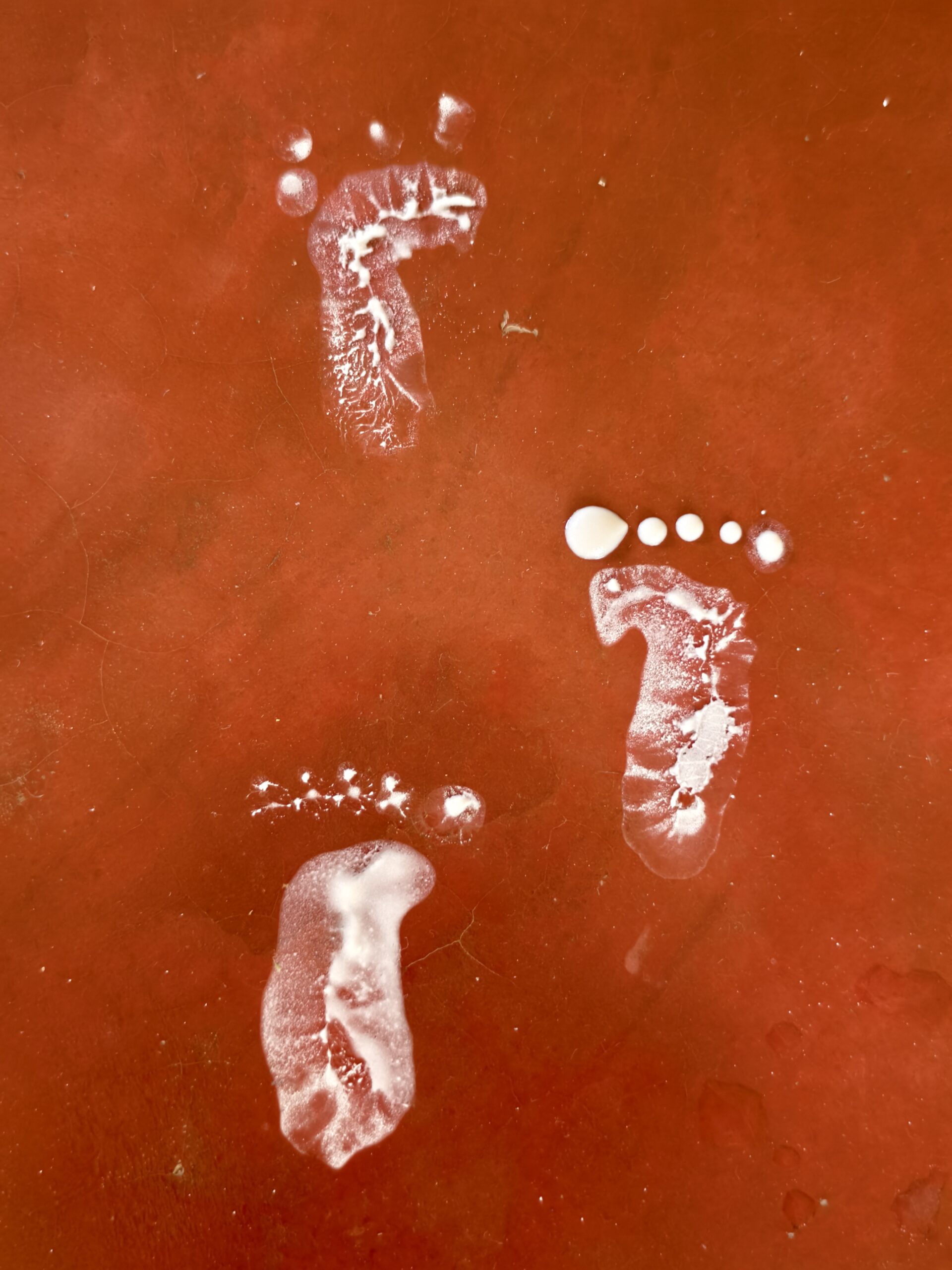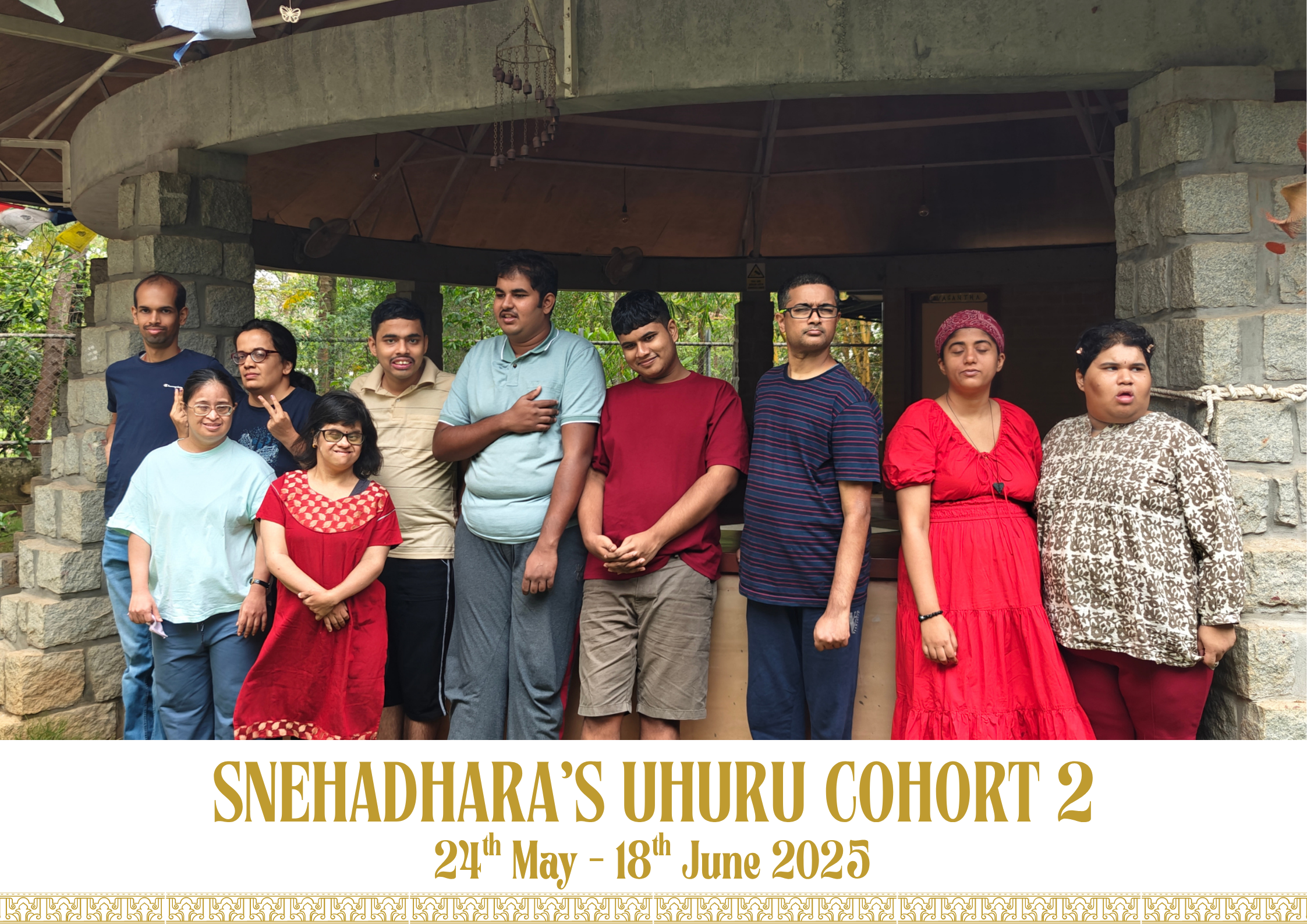When we began the Uhuru programme at Snehadhara Foundation, it was with one deeply felt question in mind “What after me?” This question, often unspoken but always present in the minds of families of neurodiverse adults, became the spark for something far greater than a programme. It became a journey of community, rhythm, courage, and care.
Over two immersive cohorts, we have watched this journey unfold not just in the lives of the participants, but in all of us. What started as a 26-day assisted living training has grown into a living, breathing model of what supported autonomy can truly look like.
A Blueprint for Shared Living and Learning
Cohort 1 laid the foundation, testing the waters of assisted living through arts practices, shared meals, and community rhythms. Cohort 2 deepened this work. With two structured learning sessions a day, integrated vocational tasks, and field immersions in public spaces and government schools, we saw a transformative shift in stamina, leadership, and social reciprocity.
The participants didn’t just learn they led. They didn’t just show up they shaped the space. From co-facilitating with children in government schools to navigating unfamiliar spaces like the Bhakti dance-theatre performance at Chowdiah Memorial Hall, they adapted with grace, pride, and collective strength. These moments, impossible to stage or predict, reflected a simple truth that training in assisted living is a skill for neurodiverse adults, for families, and for the communities that surround them.
Just as one trains in music or math, assisted living with its nuanced emotional, social, and daily demands needs time, structure, and compassionate instruction. This journey is not one-sided. Families, facilitators, and society at large must learn, unlearn, and walk this path together.
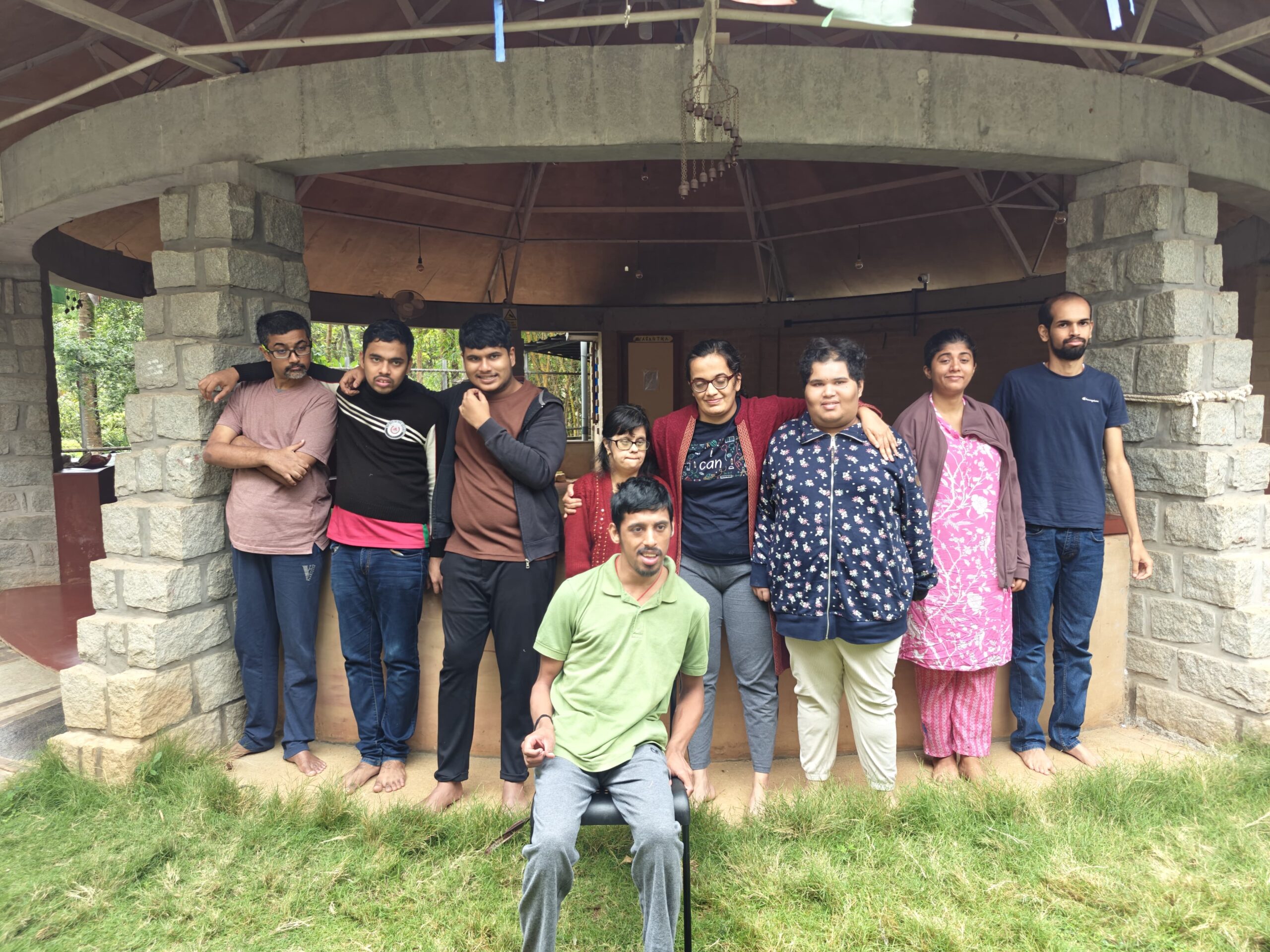
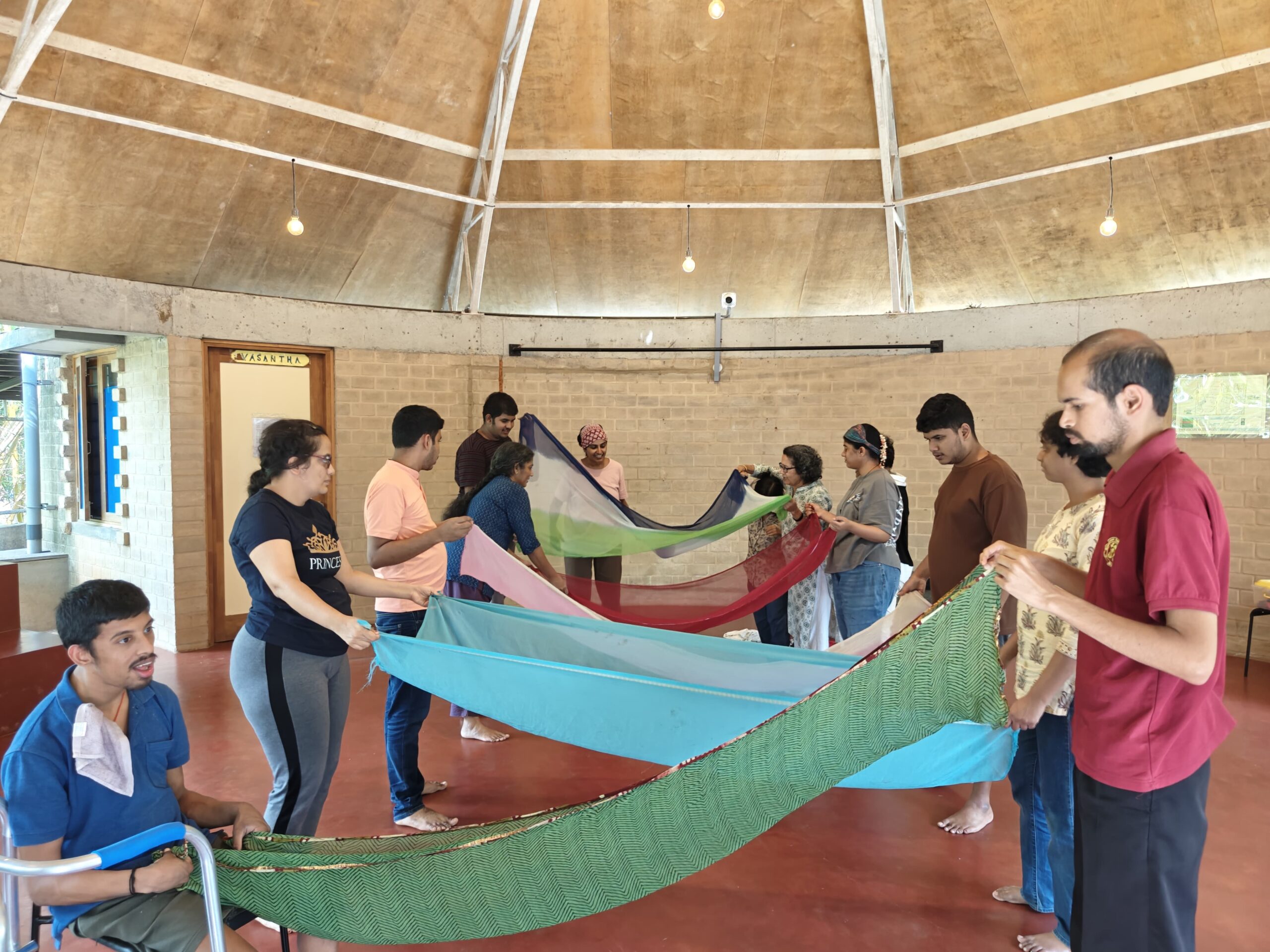
It Takes a Village and More
What we have seen again and again is that inclusion is not a solitary act it is a collective commitment. Whether it was a classroom full of children embracing their older neurodiverse peers, or a packed auditorium where not a single participant stood up or left mid-show, these moments showed us what’s possible when the world meets difference with dignity and warmth.
Uhuru was never just about preparing the participant. It was about preparing the world around them. Because for one of us to succeed, all of us need to. This has become more than a belief it’s our practice. It’s the tenet that has shaped every day of this work.
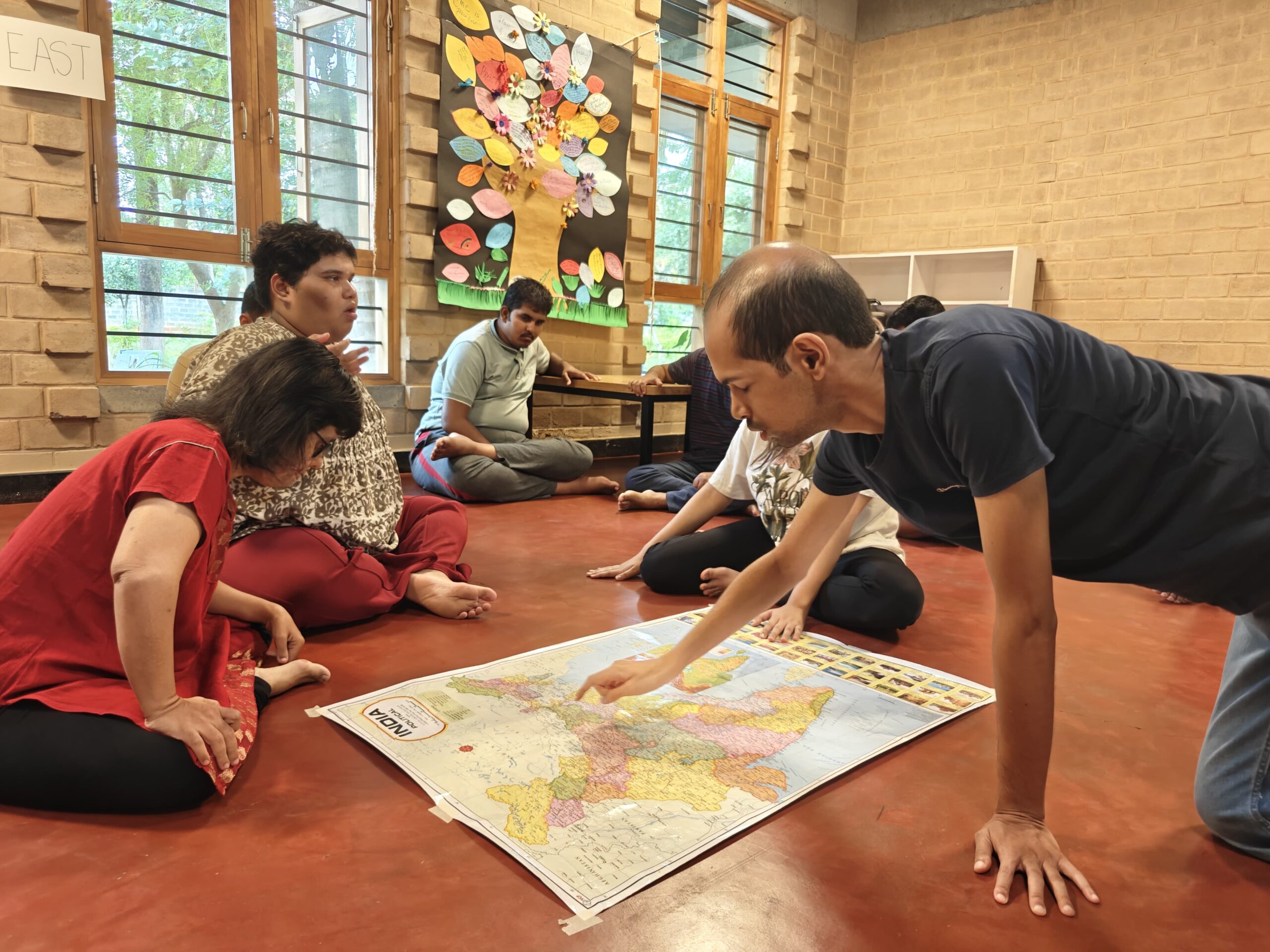
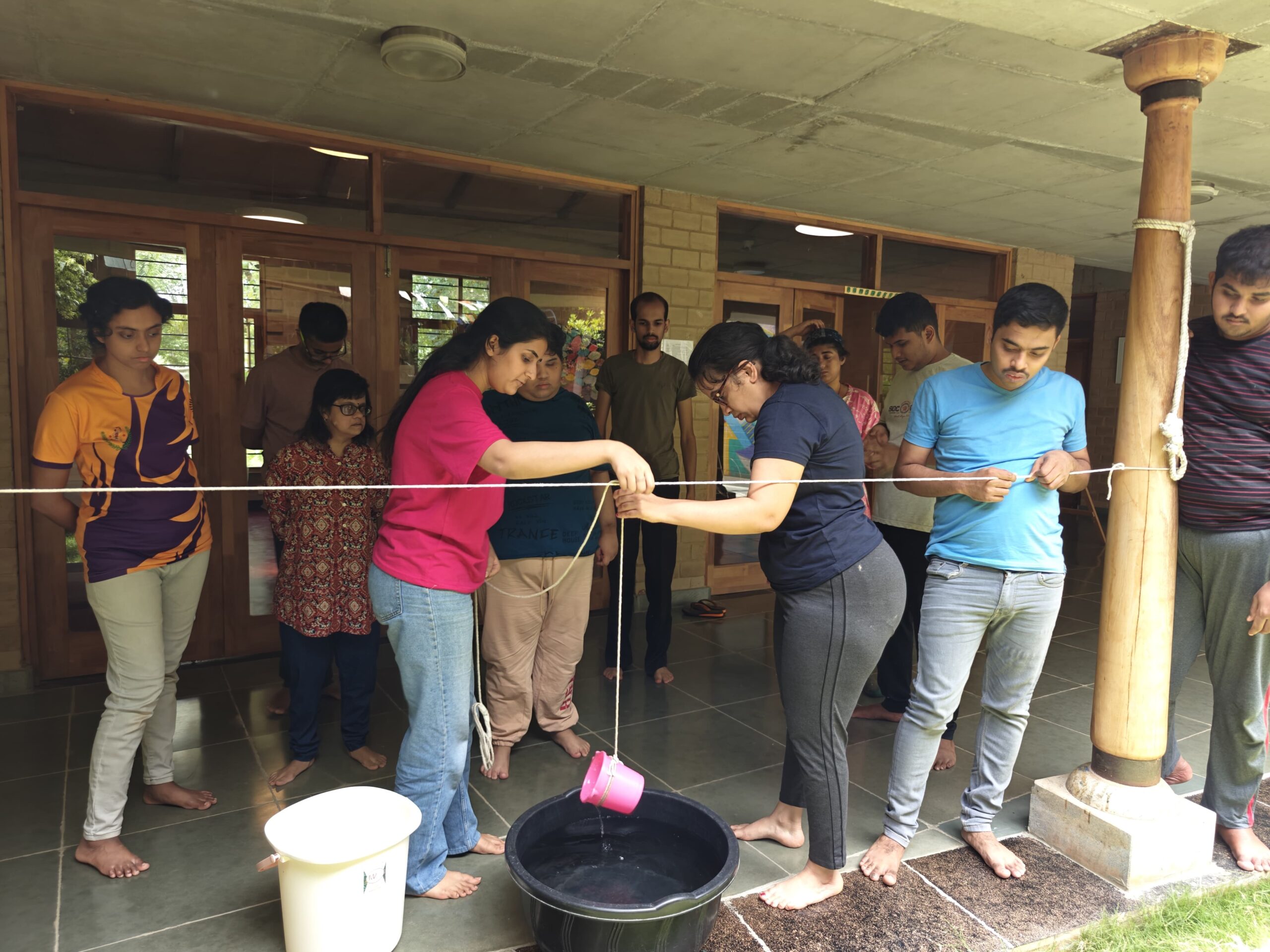
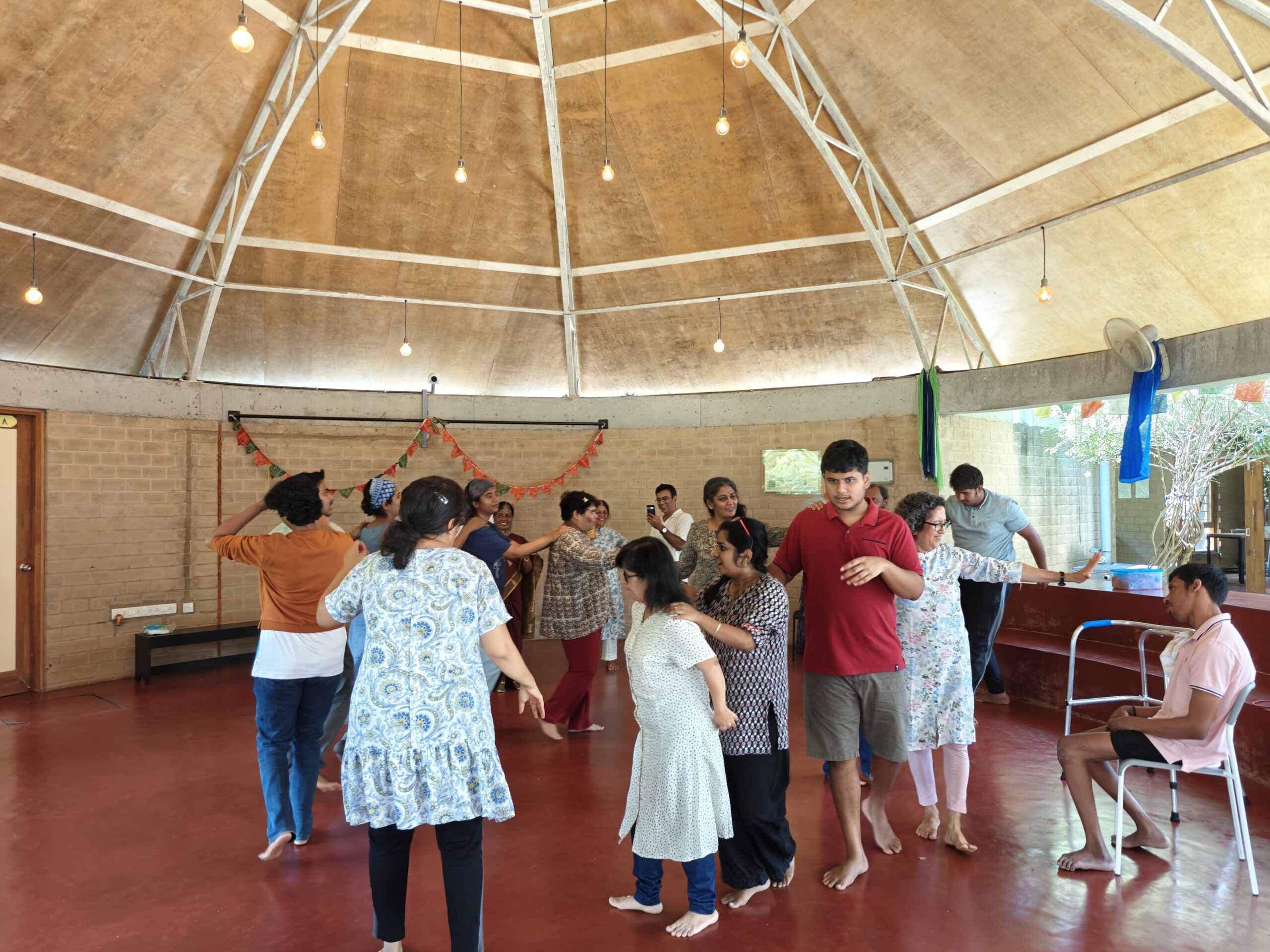
Uhuru 2.0 – Opening the Doors Wider
Together, the two Uhuru cohorts have served as a crucible for a larger pilot. They offer tangible evidence and learning to now envision a new possibility: monthly, week-long residential modules that welcome more families and neurodiverse individuals seeking community-based assisted living training. These short-term, high-impact immersions are steppingstones toward supported autonomy. The scaffolded curriculum, grounded in rhythm, arts-based practices, and shared living, becomes a reliable container for not just functional growth, but the deeper work of identity, joy, and connection.
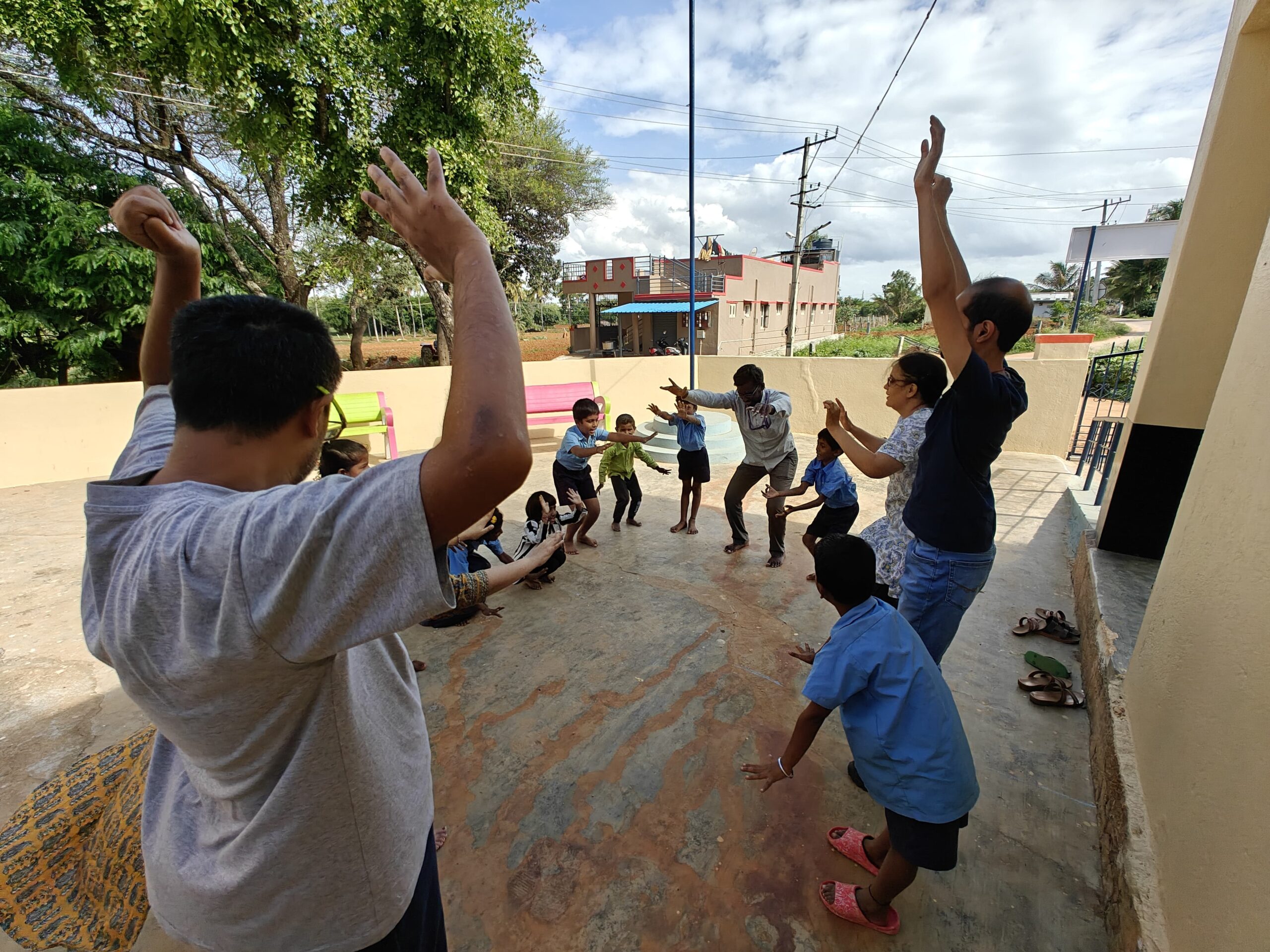
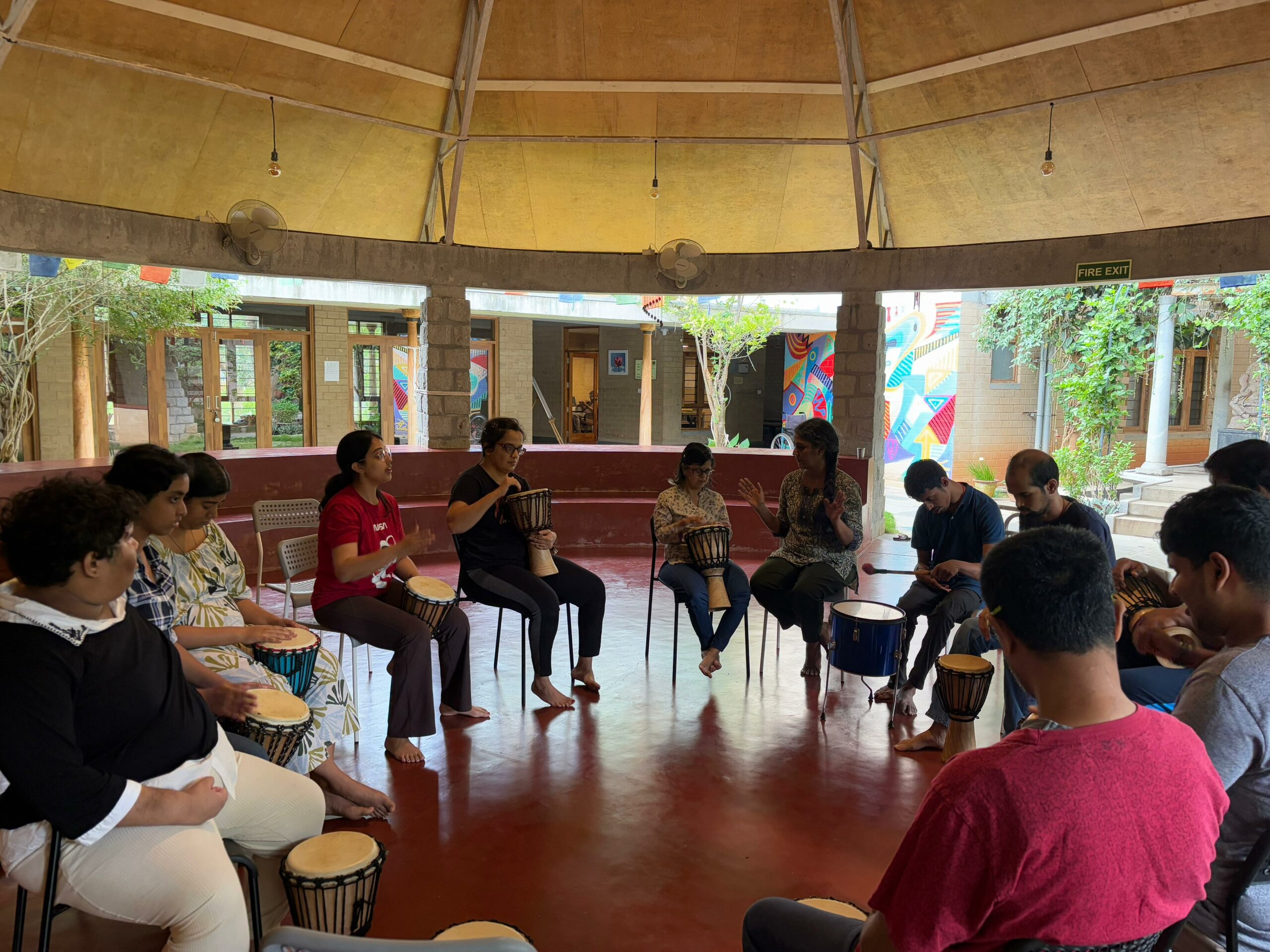
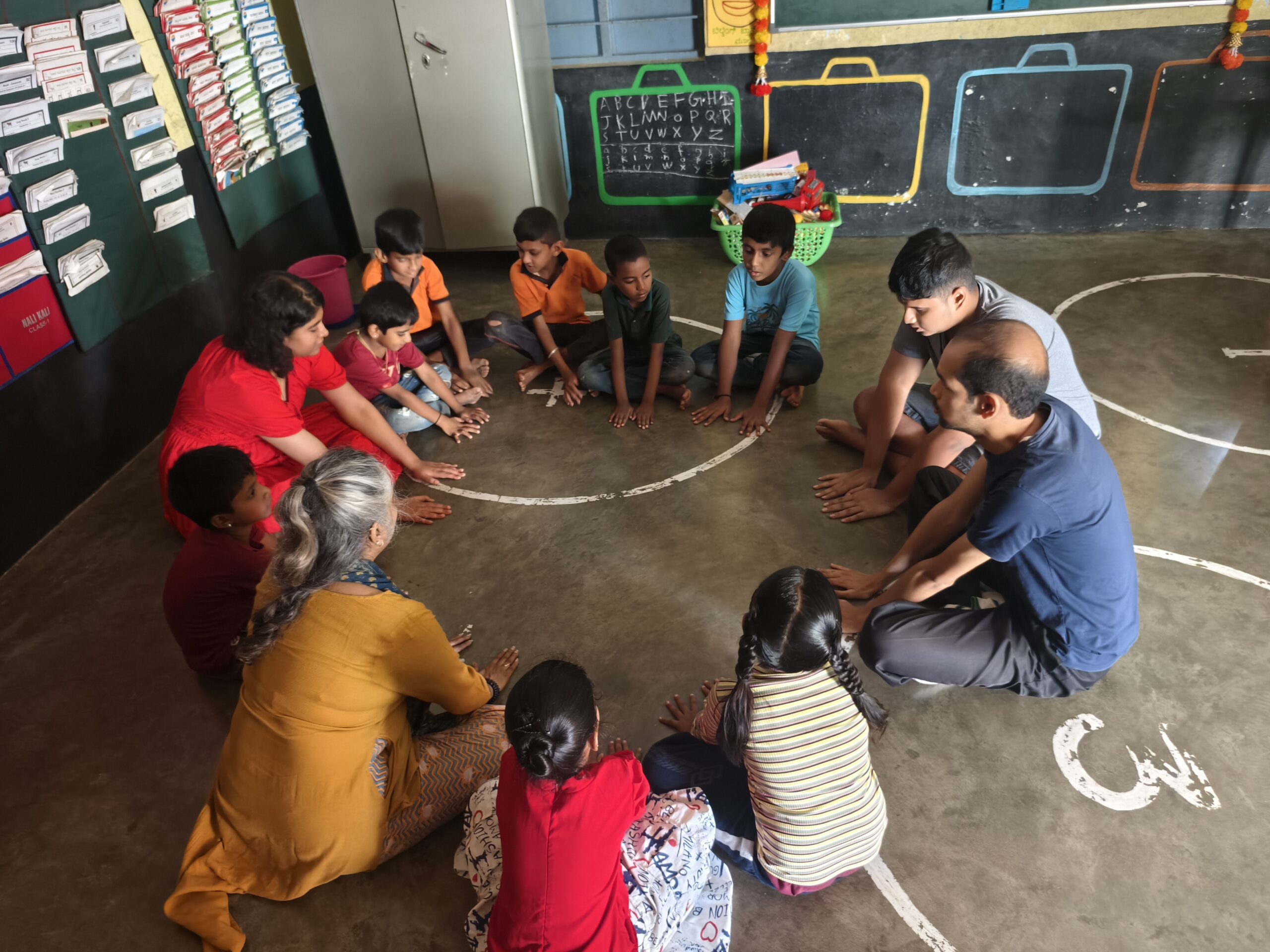
It’s our way of saying: Care needs Care too.
Starting July 2025, we will be offering monthly 7-day residential immersions at our Nelamangala campus thoughtfully designed for neurodiverse individuals and their families. Each cycle will blend arts-based practices (movement, rhythm, theatre, visual arts), social immersion through field trips and school visits, independent living skills like cooking, cleaning, and self-care, and community engagement through shared routines and tasks. But this isn’t just a space for participants, it’s also a space for caregivers. We envision Uhuru as a place where families can breathe, where parents can rest and rejuvenate, trusting that their children are safe, seen, and thriving.
We hope that through scheduled cohorts, ongoing outreach, and collaboration with organisations in diverse locations, we can co-create a sustainable, inclusive model. Every new partnership, every new family that joins, brings us closer to the dream.
An Invitation
Uhuru is no longer just an idea. It is a path. One shaped by all of us those who joined, supported, and believed. And now, it is open to others.
To families asking what after me, we say — walk with us.
To organisations exploring community-based living, we say — partner with us.
To practitioners and artists who believe in rhythm, relationship, and radical inclusion — come, co-create with us.
Uhuru is here. Rooted in rhythm. Held in care. And reaching outward because the journey of assisted living belongs to all of us.
